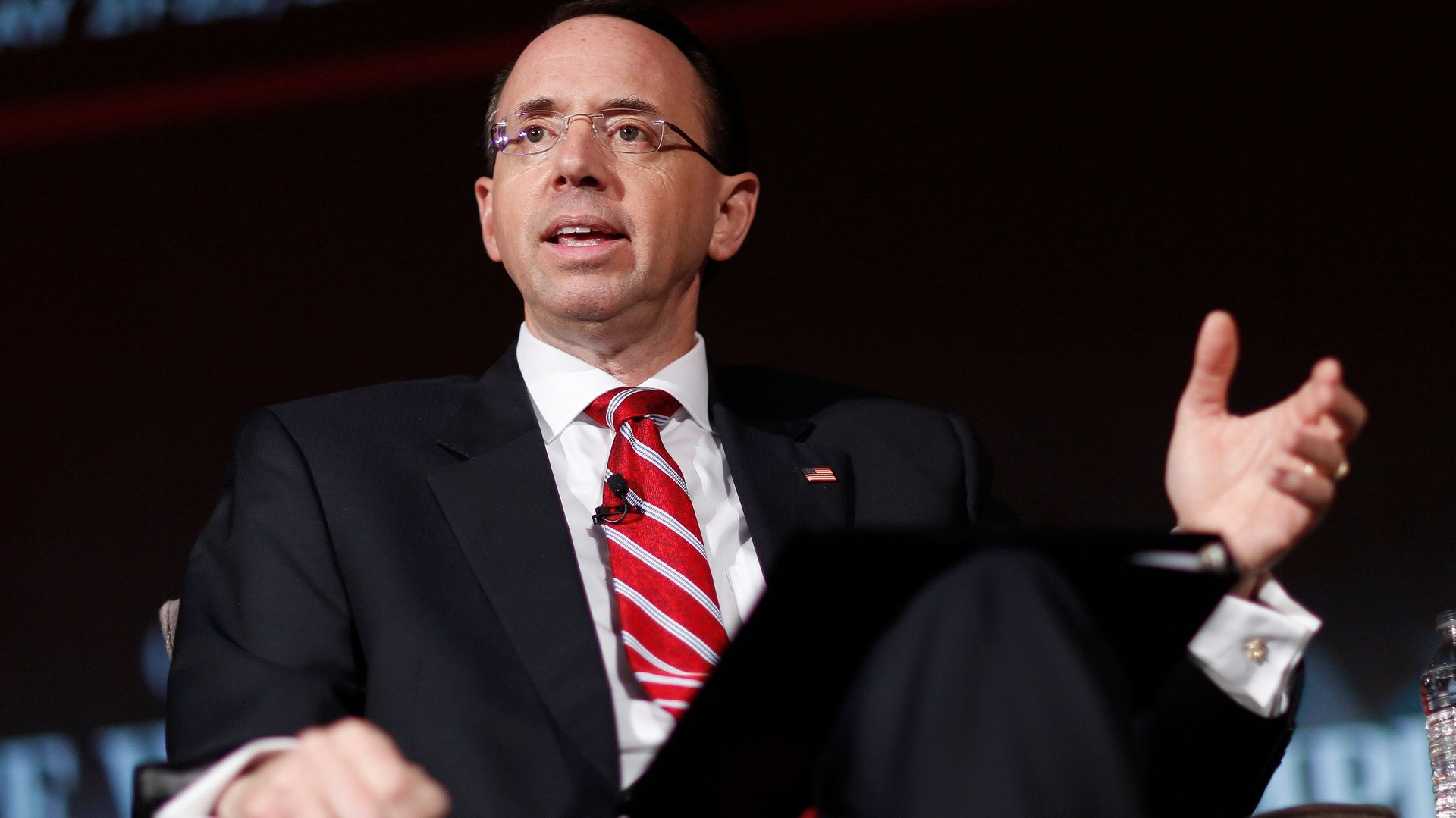Everything you need to know about Trump’s FBI spy claim
After a barrage of tweets from president Donald Trump yesterday (May 20), the Department of Justice will now probe the FBI’s use of an informant to gather information on the Trump campaign in 2016.


After a barrage of tweets from president Donald Trump yesterday (May 20), the Department of Justice will now probe the FBI’s use of an informant to gather information on the Trump campaign in 2016.
Trump was responding to reports by the New York Times and Washington Post that the FBI had sent a source to meet at least two campaign aides, as part of its probe into the Trump campaign’s ties to Russia. It’s unclear what information that source actually provided to the FBI, or when he started working with them to investigate the Trump campaign.
“If anyone did infiltrate or surveil participants in a presidential campaign for inappropriate purposes, we need to know about it and take appropriate action,” said US deputy attorney general Rod Rosenstein.
Here’s what we know about it so far:
Who was the FBI informant?
The FBI informant was Stefan Halper, according to the Wall Street Journal (paywall) and NBC. Halper is an American academic, sometime politics professor at Cambridge University, and Republican political operative, who worked in the Nixon, Ford, and Reagan administrations. He has provided information to US intelligence services “for years,” according to the Washington Post (paywall).
What did Halper do?
Halper met with three Trump campaign officials in 2016, according to reports by the New York Times (paywall) and Washington Post. He had several conversations about foreign policy with campaign advisor Carter Page, a controversial figure long on the radar of US intelligence for his contacts with Russian spies, who has said their talks were benign, according to the Times.
His interactions with another foreign policy advisor George Papadopoulos were more elaborate. Halper reportedly flew the unpaid aide out to London, and paid him $3,000 to write a 1,500-word academic paper. Papadopoulos, who first heard about Russia’s hack of Hillary Clinton’s emails and inadvertently tipped off (paywall) US intelligence about them, met with Halper and his assistant several times that week, according to the Times.
Halper also had coffee with campaign co-chair Sam Clovis in Northern Virginia, offering foreign policy advice and discussing China, according to the Post. It’s unclear if the meeting with Clovis was part of the FBI probe.
Were any FBI sources embedded in the campaign?
Not as far as we know. Trump demanded an investigation into whether law enforcement “infiltrated or surveilled the Trump campaign for political purposes,” and has tweeted that there was an FBI representative “implanted” into the campaign. However, no public reports suggested that Halper was embedded or conducted extensive surveillance on the campaign. The Times and Post report, citing intelligence sources, that there is no evidence Halper did anything improper.
House Intelligence Committee chair Devin Nunes earlier this month subpoenad (paywall) the DoJ for all its information about Halper, but the Justice Department declined, citing Halper’s safety and relations with intelligence partners.
What has the Department of Justice done in response?
A few hours after Trump demanded an investigation, Rosenstein expanded an existing probe by the DoJ’s inspector general, an internal watchdog, who was looking into how the FBI had secured warrants to spy on Page. DoJ spokeswoman Sarah Isgur Flores said the probe would examine “whether there was any impropriety or political motivation in how the FBI conducted its counterintelligence investigation of persons suspected of involvement with the Russian agents who interfered in the 2016 presidential election.”